
Another Wild Idea
 |
Available on DVD:![Charley ChaseAt Hal Roach: The Talkies Volume Three 1934-36 (Sprocket Vault, 2021) [USA]](web_images/dvd-charley_chase_34-36.jpg)
|
|
Frank Austin has invented a ray machine that can render a person incapable of surpressing their desires. He proudly shows it off to his nervous assistant, who makes a quick excuse and leaves his house immediately! That night, Betty, the inventor's daughter is on her way home from a masquerade party dressed as a general, and with her boyfriend (Chase), who is dressed as King Henry VIII - the pair get into an argument in the car over which radio station to tune into. Betty gets out of the car by the railroad crossing, pursued by Charley who tries to reason with her. However, their arguing soon turns to fear when she gets the heel of her boot stuck in the train tracks as an oncoming train approaches. Charley rescues her in the nick of time, but the train wrecks the car, which Charley has parked in the middle of the tracks up ahead. Dutifully, Charley walks Betty home. They are disturbed by the loud snoring of her father and Charley thinks better of coming into the house. As he goes to leave, he catches his jacket in the door hinge and traps himself and ends up falling asleep in a vertical position. The next morning, the milkman (James C. Morton) arrives to find 'the sleeping king' on the doorstep and flees in a panic! Charley, still fully dressed as the king, walks along the street and passes cop Harry Bernard. In what is one of the most humorous scenes in the entire film, Charley casually acknowledges him; "Morning officer." - "Morning, Henry.", replies Bernard. In town, the now-dressed Charley waits for Betty out on the sidewalk. Her father has brought his ray machine along and deliberately zaps Charley with it when a beautiful woman (Kay McCoy) comes out of the building. Under the influence of the ray's spell, Charley springs to life and adjusts the girl's hat and starts flirting with her, right under Betty's nose, who takes exception to this. Charley tries to explain his innocence but it falls on deaf ears as he follows her across the street. He is struck by a second ray, which results in him pushing two unsuspecting men into a water fountain (one of them is Charlie Hall). |
|
Charley and Betty stop outside a radio shop and listen to a broadcast of "Peter Rabbit", a children's story being read out by the announcer (Billy Gilbert). Charley gets zapped again, and as a result it brings out his annoyance with the story so he grabs a brick and demolishes the radio. The inventor's friend asks why Charley always seems to be the target for the ray machine, and the inventor confesses that he is trying to make Charley crazy all the time so that his daughter will dump him. Betty storms off, telling Charley she is going to return the ring he gave to her. As the couple stop outside a fruit and vegetable store, Charley receives his fourth zap from the machine. Nearby, an angry police officer (Tiny Sandford) bullies a much smaller man over parking six inches too close to a fire hydrant and threatens to throw him in "the hoose-gow" (prison) for the offence. Charley snaps, and begins launching vegetables at the cop (with pretty good accuracy, apart from his first throw). The proprietor (Harry Bowen) is quick to demand an explanation, but Charley offers to fully reimburse him for all items used! After enduring quite a bombardment, the cop finally is able to confront Charley and take him away. In the courtroom, Charley is in a straightjacket and with four policemen watching over him closely, each armed with a shotgun. The judge (Harry Dunkinson) orders Charley to remove his hat. Unable to use his arms, Charley jerks his head and his hat flies off, landing on a coat rack. The courtroom explodes with applause, including the judge! Betty urges her father to tell the judge how Charley ended up in the predicament he is in. The judge listens to the inventor's excuse but dismisses it as "impossible". The inventor offers to test his ray machine on the judge to prove its capabilities. The judge is zapped with the ray and as a result, he orders a drink from one of his officers, and then threatens to have the arresting officer (Sandford) fired. The twelve men of the jury are zapped and break out in song. They are promptly fired. The district attorney is asked his opinion, and he suggests that Charley's straightjacket be removed. The judge releases Charley. A man sitting behind Betty in the courtroom manages to throw the switch on the ray machine, infecting Betty who races towards Charley and proposes to him. Charley and Betty break out in song as he accepts her offer. |
| Favourite bit After a night out in fancy dress, Charley is still dressed up as King Henry VIII. As he walks down the street he passes a patrolman coming the other way. Chase: "Morning officer". Officer: "Morning Henry". It's so casual, up until the point where the cop does a double-take! |
| Trivia • Copyrighted May 1, 1934. • The two songs performed by Charley Chase in the film are "Henry VIII" (in the car), and "Lunatic's Love Song" (in the courtoom). The two songs are also featured (without vocals) on the music track for Laurel and Hardy's Them Thar Hills, released a month after this film. • When Charley is first seen driving home at night with Betty in the car, not only does he barely look at the road ahead, but also he hardly has his hands on the steering wheel either! • As Charley pulls up to the railroad crossing to let the train pass, the word "Sebastian's" appears in the distance in flashing neon lights. This is "Sebastian's Cotton Club" - located in Culver City, California and owned by Frank Sebastian, who opened the jazz club in February 1926. It is located at 6500 Washington Blvd, not far from the Hal Roach Studios at 8822 Washington Blvd. • As Charley and Betty walk towards Betty's house after the train incident, you can see the spotlight which is cast upon them from the camera position. • Watch as the milkman (James C. Morton) closes the gate at Betty's house. It is clearly not attached to the wall! • When Frank Austin opens his front foor, he effectively releases Charley from the hinge. Charley puts his hands out to break his fall, which would indicate that he couldn't possibly have been fully asleep. • Charley waits for his girlfriend outside the Westlake Professional Building. • The woman with the hat (Kay McCoy) that Charley flirts with doesn't appear to be wearing a bra. Either that or she is in a constant state of bouncy excitement! • When Betty confronts Charley in the street and asks him if he was dropped on his head at birth, they are standing outside a tobacco shop. In the window there is a sign bearing Babe Ruth's name. This is the same store Anita Garvin visits to buy her shotgun in Laurel & Hardy's "Blotto". • The voice of 'Percy' on the radio outside the store is provided by Billy Gilbert. The radio is for sale at $29.95. • The vegetables bill comes to $6.85, with a 12 cents tax. • The judge is played by Harry Dunkinson. He also played the judge in Laurel & Hardy's Going Bye-Bye!, which was also in 1934. • Harry Bernard's character is called "Hawkins". He is seen twice in the film; firstly, addressing "Henry" in the street and later in the courtoom with a gun pointing at Charley. • The jury sings the first lines of "A Stein Song" which was originally a poem by Richard Hovey and subsequently set to music. • When Charley and Betty have their dispute over the radio in the car, they refer to two popular bandleaders of the era, Vincent Lopez ("Vincent Topaz" in the film), and Guy Lombardo ("Guy Lumbago" in the film). To add to the competitive strain, the music alternates between the two standard Roach composers, LeRoy Shield and Marvin Hatley, as the "Vincent Topaz" tune is Shield's "The Moon and You" and the "Guy Lumbago" is a Hatley tune from one of Roach's musical shorts. "Lunatic's Love Song" also refers to contemporary figures, naming both Mae West and Charles Lindbergh in the lyrics. • Prohibition, which had been fully repealed only about 6 months earlier, is referenced both by the jury singing "A Stein Song" and the judge ordering a highball - an act that would've been publicly unthinkable just a short time before for a member of the judiciary. • The first half of the film reworks material from two of Buster Keaton's films. The train taking an alternate track and destroying Charley's car refers to a scene from Keaton's PARLOR BEDROOM AND BATH (1931), where Buster's miniature roadster is crushed by a second train after he and his girlfriend think the first train, having passed by on a parallel track, has missed the car. • Charley getting stuck in the door and falling asleep standing up reworks a gag from Keaton's THE HANUTED HOUSE (1921), in which Keaton gets trapped in the time lock of a bank vault and ends up sleeping overnight in the same position. • Set design notes: Frank Austin may have some association with Professor Noodle from L&H's Dirty Work (1933), because he uses an identical set of test tubes and pipettes in his home laboratory. (It would be interesting to know if the role of the inventor was intended for Lucien Littlefield, because the role is almost identical, right down to having an unwilling subject - Sam Adams in DIRTY WORK and Charles Lloyd in ANOTHER WILD IDEA - who refuses to be made a test case for the experiments in each film. Both films also feature cast members who become unwary and accidental victims of the experiment gone awry as well). • At about 8 minutes in, when Frank Austin and Charles Lloyd are outside a drugstore set on the Back Lot, there's an advertisement for Ex-Lax on the wall, reading "Keep Regular With Ex-Lax / Prescriptions / Drugs / Toilet Articles". Later, at the fruit stand, to its right is an advertisement for Hills Bros. Coffee. • At about 13:45, there's an extra in the courtroom on the upper right of frame who looks like Ernie Alexander, though the face appears too thin, and I'm not sure if that's Jack Hill as the other man beside Charlie Hall who gets pushed into the fountain. • Eddie Dunn's voice is heard as the radio announcer introducing "Uncle Percy." • When Charley demolishes the radio, the announcer says "Yoooou nasty man!" This was a catchphrase of radio comedian Joe Penner, who was then at the height of his popularity. • The radio's price of $29.95 in 1934 would be around $450 in 2021, and Charley's bill of $6.85 at the fruit stand would be about $100. So he must be well off in this film to take these and the destruction of his car in stride. From Robert Winslow: • Like a lot of Chase's films, this has two gag sequences only slightly related to each other, but the guise as Henry VIII and Betty's father's idea of making Charley appear crazy fit logically and help unite the film's parts, since getting dressed up as a king would be considered a symptom of delusional behavior. (There's a "Seinfeld" episode which indirectly references this concept: George has a girlfriend who thinks he's becoming mentally unstable and paranoid, and toward the end of the episode George is convinced by Kramer to dress up as Henry VII to promote a theatrical showing of - what else - the 1933 PRIVATE LIFE OF HENRY VIII; when George's girlfriend sees George in his kingly garb, she reacts in horror). The second half of the film is a little more predictable than the first half, although it affords Charley some fine acting possibilities as he abruptly switches from his normal timid demeanor to moments of outright aggression. The idea of Charley becoming a public enemy seems to derive from the contemporary fascination with gangsters, especially John Dillinger, who at the time this film was made was the subject of a nationwide manhunt after he broke out of prison in March 1934, and Charles "Pretty Boy" Floyd, who was also wanted after a lengthy manhunt that began that February. Overall, a decent character-driven film with high production values and some enjoyable music. My opinion • Pretty decent. |
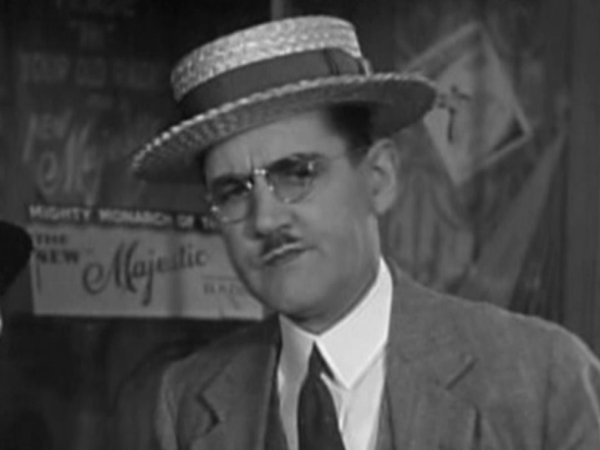 |
Charley Chase Charley Chase/King Henry VIII |
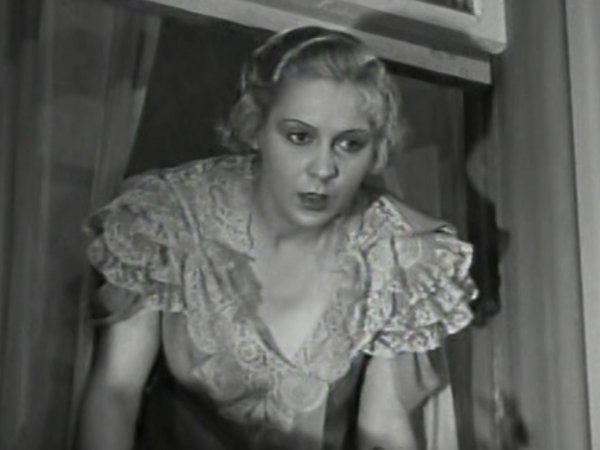 |
Betty Mack Betty |
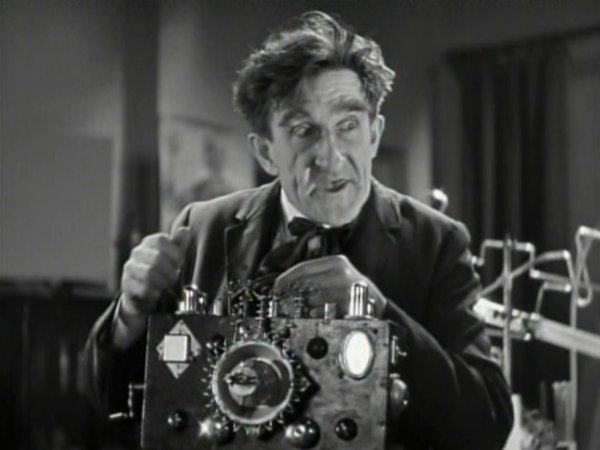 |
Frank Austin Betty's father |
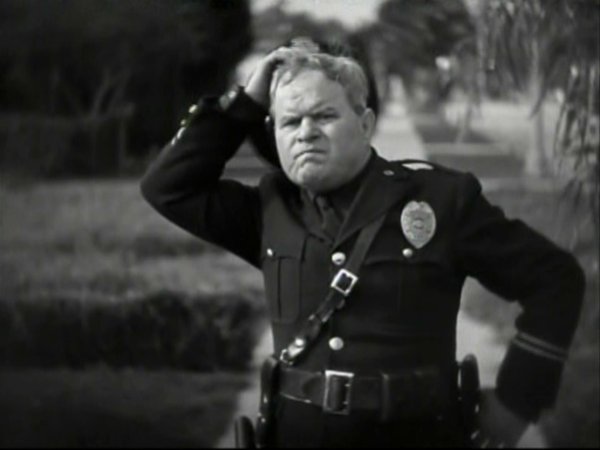 |
Harry Bernard Hawkins, the cop |
 |
Harry Bowen Vegetable man |
 |
Baldwin Cooke Radio store proprietor/ Courtroom spectator |
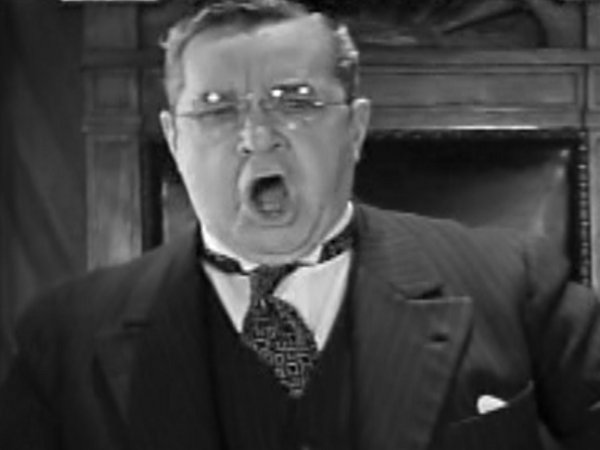 |
Harry Dunkinson Judge |
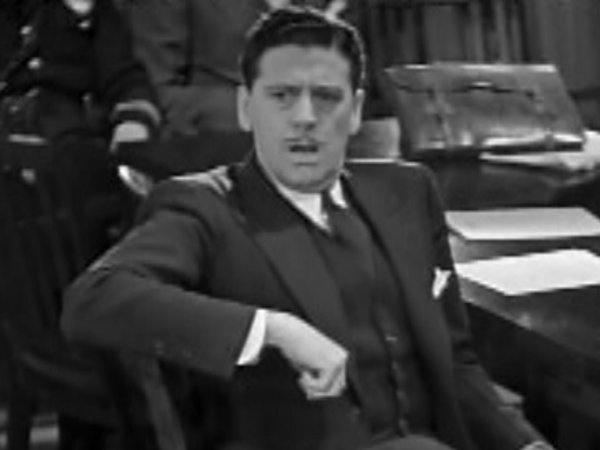 |
Carlton Griffin District Attorney |
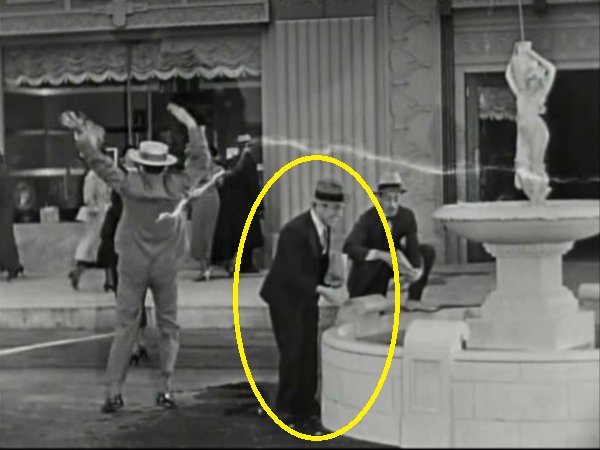 |
Charlie Hall Man pushed into fountain |
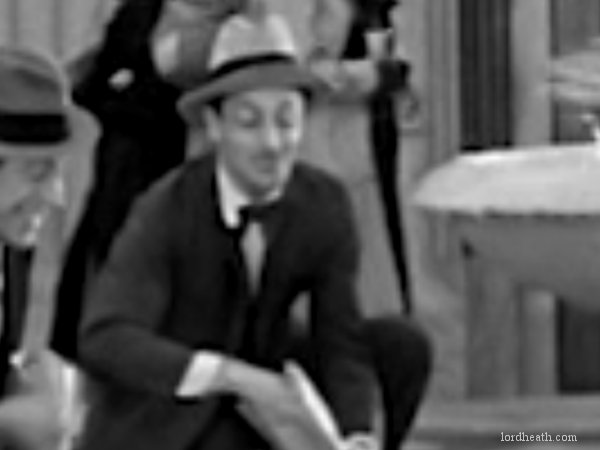 |
Leo White Man throwing food into fountain |
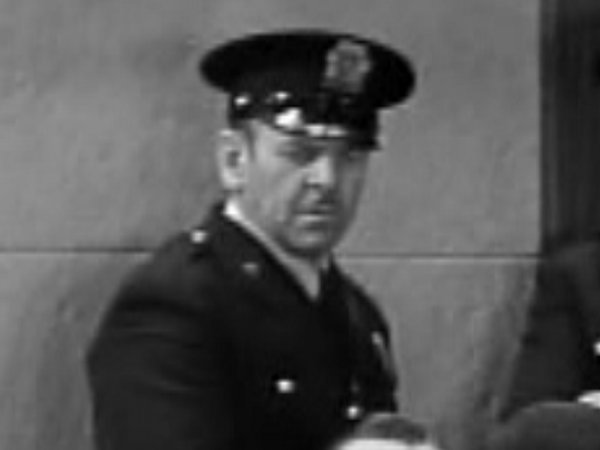 |
Pat Harmon Courtroom cop |
 |
Chester Bachman Courtroom cop |
 |
Charles Lloyd Betty's father's assistant |
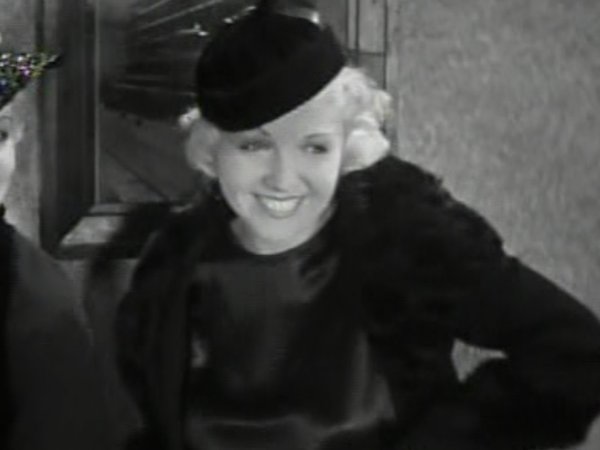 |
Kay McCoy Flirt |
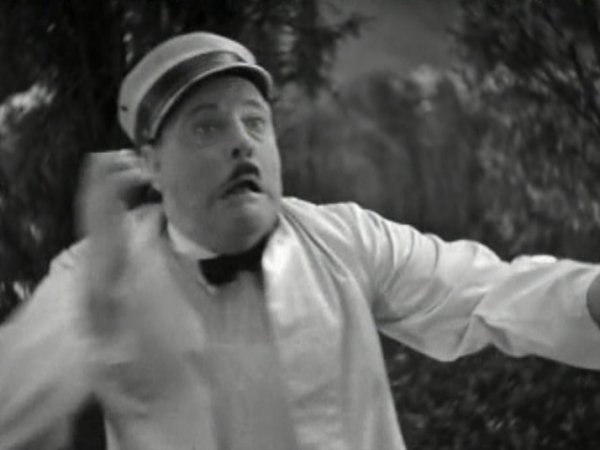 |
James C. Morton Milkman |
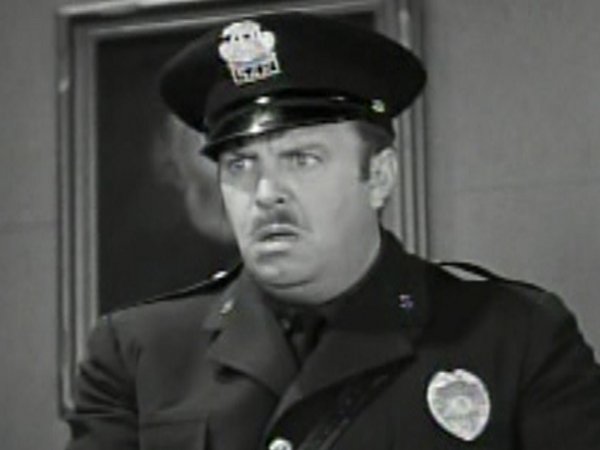 |
Tiny Sandford Big cop |
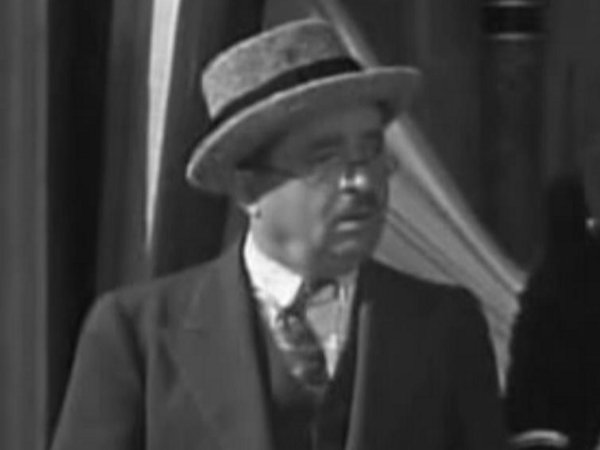 |
Billy Engle Illegally parked man |
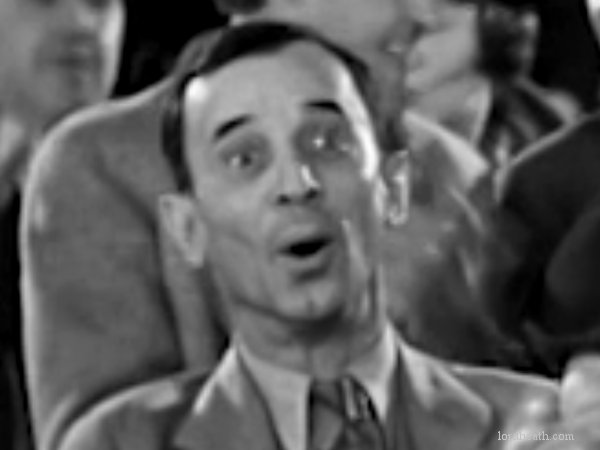 |
Pete Gordon Courtroom spectator |
 |
Cap Somers Courtroom spectator |
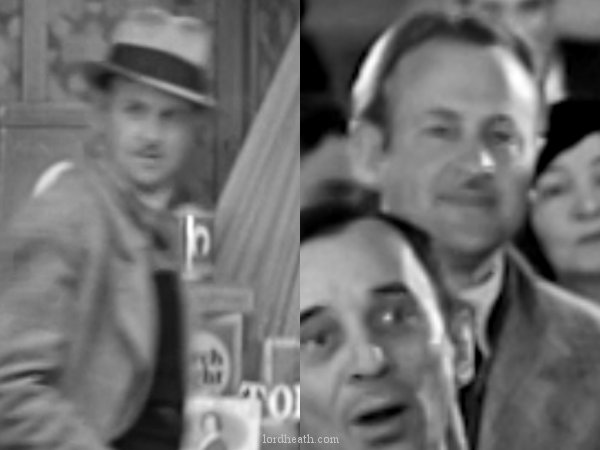 |
Russell Custer Pedestrian/Courtroom spectator |
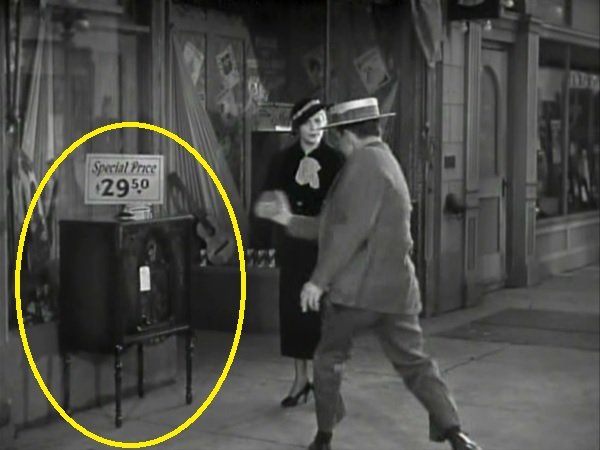 |
Eddie Dunn Introducing Uncle Percy (voice on radio) |
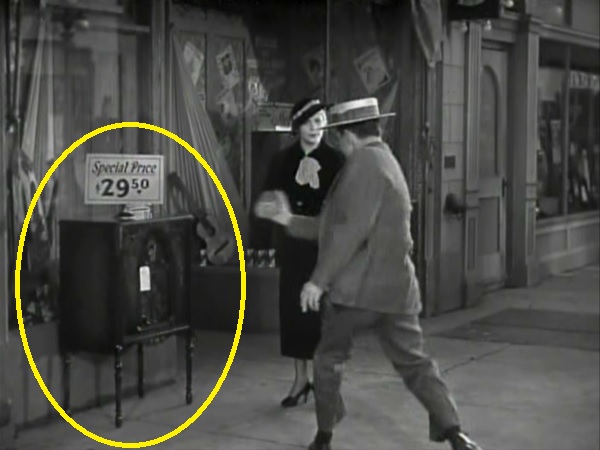 |
Billy Gilbert Uncle Percy (voice on radio) |
George Nardelli Wop |
Harvey Shepard Pedestrian/Courtroom spectator |
![[Unidentified] in Another Wild Idea (1934)](web_images/unknown_2___another_wild_idea.jpg) |
UNIDENTIFIED Cop |
| CREDITS (click image to enlarge) |
 |
| POSTER (click any image to enlarge) 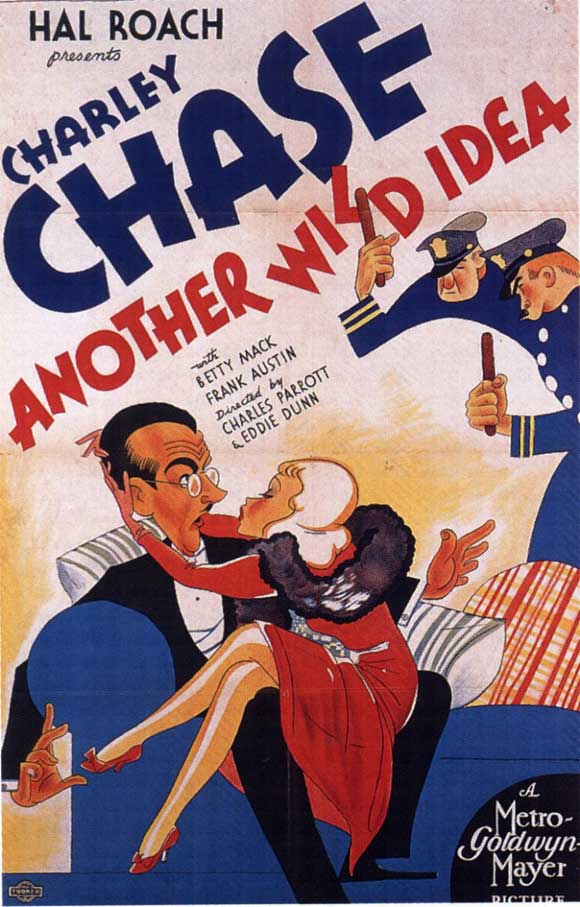 |
| Acknowledgements: Smile When The Raindrops Fall by Brian Anthony & Andy Edmonds (book) Jesse Brisson (identification of Baldwin Cooke, Leo White, Pete Gordon, Cap Somers, Chester Bachman, Russell Custer, Harvey Shepard) Ed Watz (identification of Sebastian's Cotton Club) Randy Skretvedt (information regarding Sebastian's Cotton Club) Robert Winslow (trivia notes) This page was last updated on: 29 December 2025 |